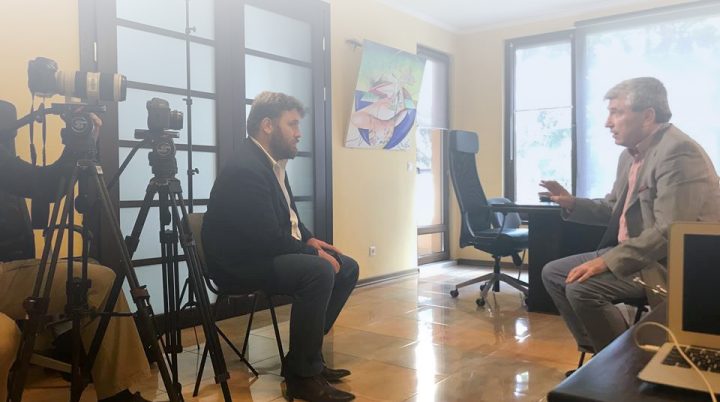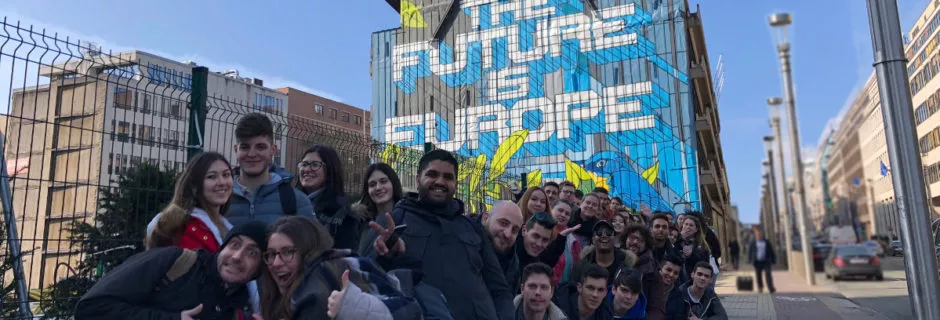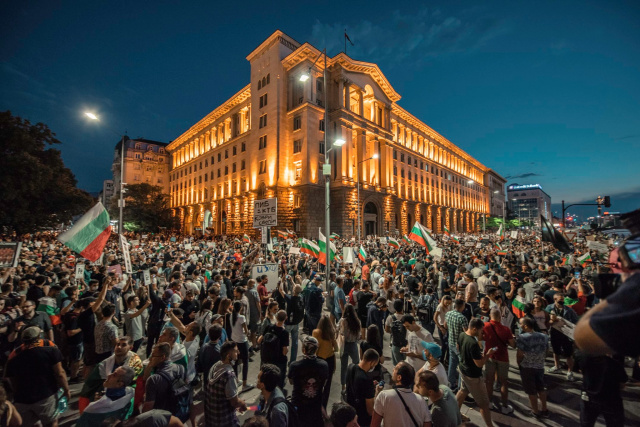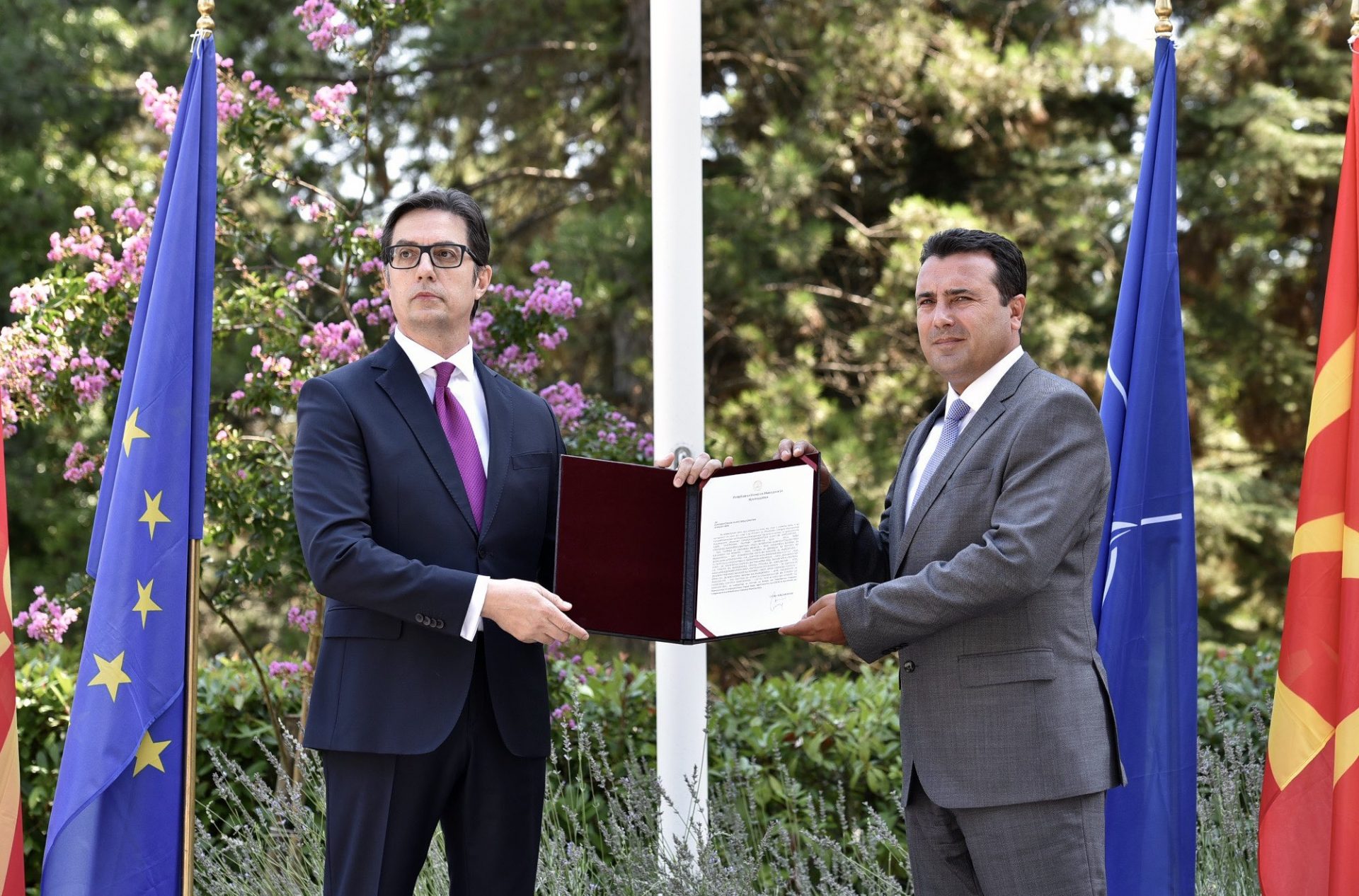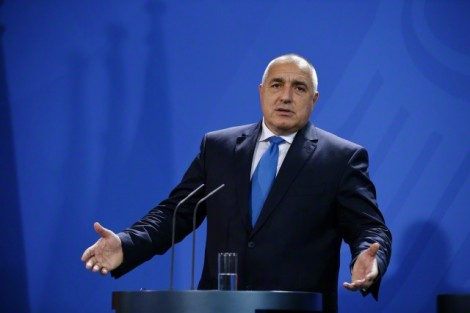Some time ago, I was approached by an established Bulgarian journalist who was trying to broker an interview with a Russian TV crew, ostensibly working for the international program of Rossiya 24 – one of the main Kremlin channels. Having rich, including negative experience with Russian journalists, who often creatively edit recorded content – blending unrelated parts so that the interviewee could easily appear as a retard – or just dump the interview altogether, I refused initially.
The last time, a TV crew from Moscow’s city channel, TVTZ, came over to shoot a propaganda slot, portraying Bulgaria as a totally devastated country after it joined the EU and NATO. These crude propaganda shots are meant for home use, aimed at convincing the Russian audience that the former brethren are or should feel sorry for breaking ranks with the empire. A 40-minute interview, shot in the lobby of a hotel in downtown Sofia, never made it to the screen. One wonders – why do these guys show interest in interviewing the only former Bulgarian Ambassador to Russia with an entry ban to Russia?
The logic is simple – Russian intelligence services and propaganda centers show keen interest in better understanding their opponents. The journalist-reporter disguise is perfect, as few would refuse to communicate their thoughts to the Russian public, including the Russian opposition. This is at least the theory, as the interview remained for internal use only.
Luckily, there is a growing number of alternative channels, which make co-existence with Kremlin-controlled media possible.
The key message in the “banned”’ interview was that our bilateral relations are overwhelmed by geopolitics to the point of being cannibalized by their energy component. People sitting in offices in Moscow believe that the energy pivot suffices to hold Bulgaria under control. Yet, these high officials in Russia are missing the baseline – Bulgaria has lost any hope of balanced and equitable exchange. Our exports to Russia are negligible, which undermines the sympathy base and any interest in doing business with Moscow. The lesson is simple – Bulgaria could replace energy supplies and forget about exports to Russia without a major hassle.
Kremlin-promoted megaprojects are meant to embed a long-term dependence line – they contradict everything that the market and the EU have been embodying. The Grand Slam schemes were conceived in Moscow, shortly before Bulgaria’s accession to the EU, in tandem with Bulgaria’s top political brass. Billions of dollars have been poured in and not a single project completed.
Under the “new” aggressive line of President Putin, Russia and Bulgaria are bound to drift further apart, seemingly irreversibly.
The damage is not only confined to a few politicians at the top, but touches upon the most intimate resource base of Russian sympathizers in Bulgaria. A typical modern Russophile in Bulgaria does not speak Russian, has never visited Russia and the only link to the Kremlin comes as a legacy from parents, media or relatives. The bond is not organic, but generic, superfluous and evasive. The total number of Bulgarian tourists who are visiting Russia each year is negligible – below 20,000 – less than the number visiting Hungary. The interest in graduating Russian universities has been in steep decline in the last decades and, despite a modest increase recently, has been nowhere near the numbers of the past.
Even if one accounts for the rising Russian immigration in Bulgaria, which generates a natural Russo-centric gravity and inflow of Russian goods and cultural products, the die-hard, pro-Russia part of the Bulgarian population is still in the range of 7-8 % – totally inadequate to force the country out of the EU and NATO.
So, when the Bulgarian journalist approached me with an interview request on behalf of one of the Kremlin’s media outlets, Rossiya 24, I was certain that the TV crew, led by Ilya Meg, was engaged in an information harvesting operation – possibly using the journalistic disguise to help Russian propaganda outlets fine-tune their latest operations in Bulgaria, accounting for opponent’s views and arguments. The company on the business cards was an obscure group, producing propaganda films for “export” or internal-use “documentaries” (as in the good old Soviet times) under the umbrella of the state media monopoly VGTRK – The All-Russia State TV and Radio Broadcasting Company.
I agreed to the interview in an honest attempt to share experience and warn about the damage that Russia’s neo-imperialist energy and PR politics could bring to bilateral relations.
Being cognizant of the limits of press freedom in Russia, I still believe it is essential that Russian decision-makers are given the full range of opinions. After more than 10- years of incessant failure on every possible project of the Grand Slam doctrine, it would be natural for Moscow thinkers to take a step back and reconsider what has gone wrong and what are the alternatives.
The risk was in the event they broadcast the interview in parts, with arbitrary editorial work and things taken out of context, that could have generated a PR nuisance for me. But ultimately the real story and the content finds its way to the public.
Now that the interview has not been aired, let me use alternative channels and share with you the gist of the exchange with Ilya Meg, which focused on the merits of Nord Stream-2 and the Turkish Stream extension for Bulgaria and Europe.
Mr. Meg was interested why I am not buying the argument that Bulgaria will benefit from transiting Russian gas through the extension of Turkish Stream on our territory. Generating cash for Bulgartransgaz and for the Bulgarian budget seem all too evident. The connotation was that project opponents are biased and stupid, denying themselves the chance to share in one of Gazprom’s most promising cash cows.
While it is true that transit of Russian gas would certainly generate monetary returns – the merit of the Turkish stream has some “fine” strings attached.
First, Bulgartransgaz and Gazexport already have a transit contract in place, valid until 2030. The tariff rates charged are the lowest in the EU, a little more than half of those in Ukraine and less than a quarter of similar tariffs paid by Gazprom in Germany (the Opal pipeline). In a way this comprises a state aid from Bulgaria to Gazprom. i.e. it is the Bulgarian government’s gift to the Kremlin.
Instead of the Kremlin offering us benevolent new ideas and projects – including new lines and inviting Bulgaria to invest more than $1.5 Billion in expanding and building new infrastructure – our two sides should deal with disparities and past dues. To present as a generous giveback what has been overpaid under current contracts with Gazprom can hardly be considered a good departure point in negotiations on new projects and no reason for exaltation.
Bulgaria has been almost constantly overpaying for gas supplied by Gazprom. Over the past 5 years, benchmarked against precedents set in recent arbitration court rulings against Gazprom and in favor of CEE based companies, the overpayments approach one billion dollars. While it is true that Bulgaria and its state company Bulgargaz have not taken the case to court, it does not in any way imply that the Turkish Stream extension and the Hub talks should again excite the Bulgarian public just because Gazprom’s name is mentioned.
That and any new project must comply with EU rules, including core liberalization and diversification priorities, which do not leave much room for extra Russian gas on top of monopoly supplies.
Therefore, what I shared openly with Mr. Meg, and what has been spared the Russian audience, is that if business is to prosper it must be mutually beneficial, without hidden agendas or one-sided interpretations. What Gazprom receives as special treatment, privileges and entitlements, well above what the market would justify, can hardly be wrapped up as a unilateral ‘good will’ gift on future promises for proceeds from a potential extension of Turkish Stream via Bulgaria.
Mr. Meg or his bosses might not have liked the responses, but they seem logical in explaining why Moscow has been faltering in its attempts to play energy projects on the EU chessboard.
They simply are not willing to listen and learn from past mistakes.

